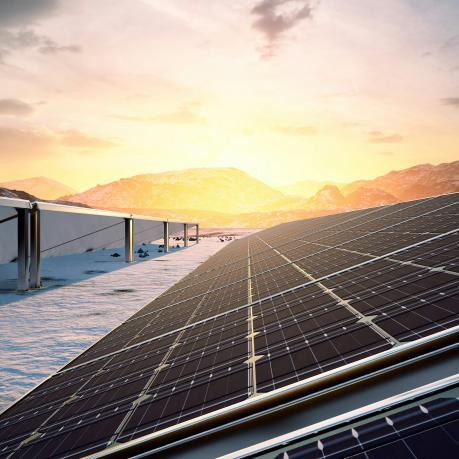
From ambition to implementation: delivering the energy transition and industrial transformation in 2026
Insight by Sandra Ghosh, Susanne Lein
News publ. 05. Sep 2022

A new article in the Süddeutsche Zeitung poses “12 big questions about climate change” to selected experts. Christian Kind, adaptation expert at adelphi research, responded to the question, “What are the most urgent adaptation measures for a country like Germany?”
“In Germany, we are at a point where we need a legal basis for the implementation of climate adaptation. The federal, state and local governments must prioritise adaptation as a joint task, with everything that goes along with that – including financing, first and foremost. The problems we face from heat, long periods of drought and heavy rain will only get worse in the years to come. Right now, we are reacting here and there, often on a voluntary basis. But most people have never heard of climate adaptation measures, and the topic also tends to go under the political radar – unless there is a supra-regional extreme weather event.
Specifically, we need to use law to authorise municipalities, for instance, to provide more local land for adaptation to climate change. So, in a simple example, an area of land is unoccupied. What do I do with it? Affordable living space that people urgently need? Parking? Sports facilities? Buildings that store heat, or sealed floors that prevent rainwater run-off. Or do I leave it as a fallow plot of land on which cool air can develop and rainwater can seep away better?
That sounds like an either-or situation, but there are also multifunctional options. Parking lots and roads can be sealed with special asphalt that allows water to seep away better. Green roofs on buildings allow water to be retained during heavy rain and later contribute to cooling through evaporation. In Hamburg, for example, there are grants for active roof greening. In Düsseldorf, proactive homeowners pay fewer wastewater fees. But incentives like this are often lacking, and since the implementation initially means additional effort and expense, they rarely take place on a broad basis. A window could also open in the course of the mobility transition. We can take those areas that are currently parking lots and turn them into green spaces, where people in the neighbourhood can cool off thanks to mist showers that spray very fine water droplets, for example.
I hope that all buildings will not be cooled with conventional air conditioning systems in the future. In retirement and nursing homes or hospitals, you will certainly need more active cooling. But even in a perfect future with 100 percent green electricity, air conditioning systems would still contribute to heating the microclimate because they transport warm air to the outside. This increases the heat pressure on those who do not have air conditioning, including people living on the streets, for example.”
Contact: kind adelphi [dot] de (Christian Kind) is the Head of Programme Climate Adaptation at the think-and-do tank adelphi research.
adelphi [dot] de (Christian Kind) is the Head of Programme Climate Adaptation at the think-and-do tank adelphi research.
The detailed article „12 große Fragen zum Klimawandel … und wie ausgewählte Expertinnen und Experten sie beantworten.“ was published on 3 September 2022 in the Süddeutschen Zeitung (Ausgabe München, Nord, Bayern, Deutschland, S. 33 / Ressort: Wissen) and can be read here in the online version (German only).
© Süddeutsche Zeitung GmbH, München. Mit freundlicher Genehmigung von Süddeutsche Zeitung Content